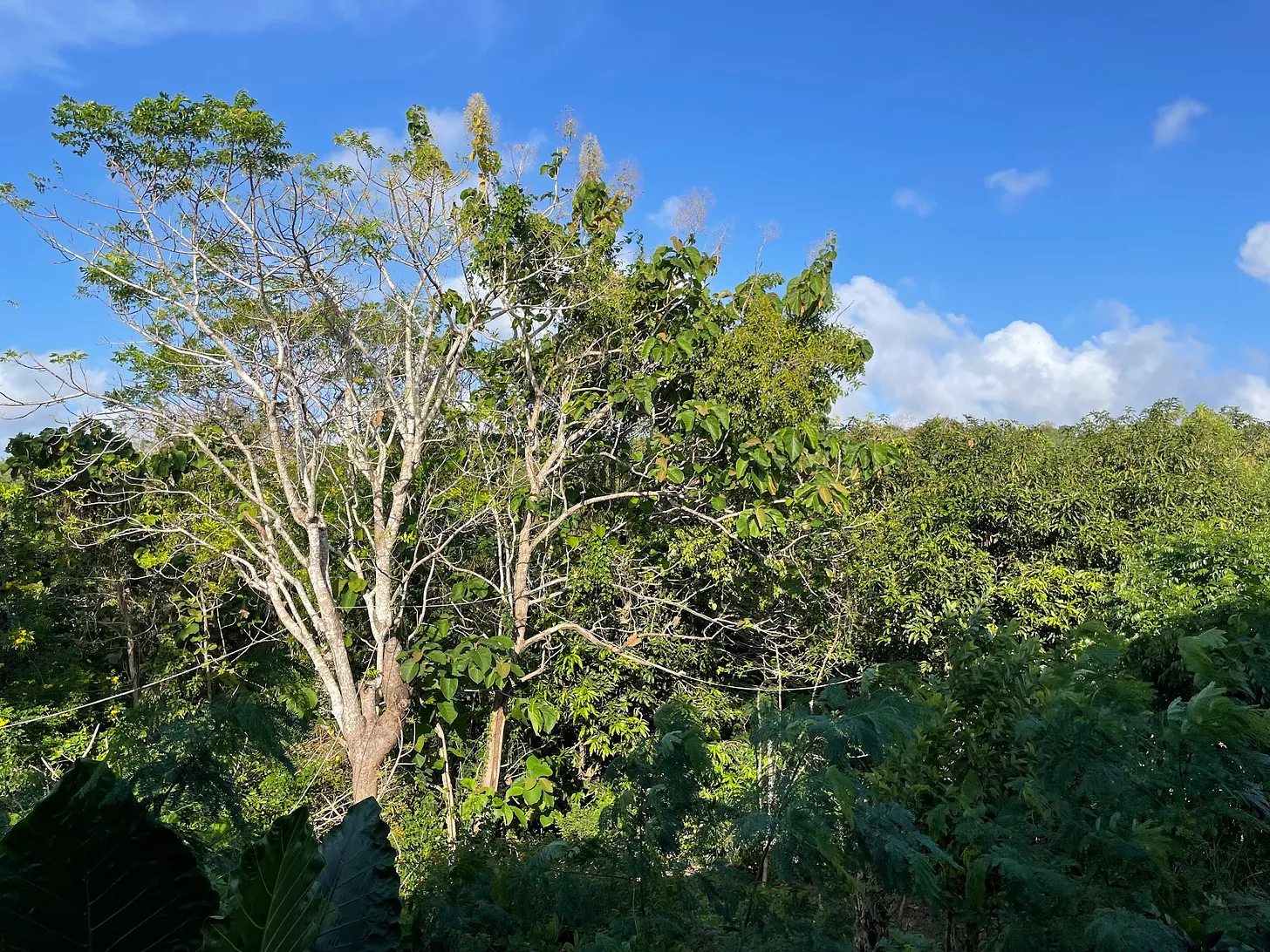Staying alive to aliveness
This was originally published in my newsletter.
From July to December last year, I lived in a little surfer town called Uluwatu, which lies at the most south-westerly point in Bali. It is among the most wonderful places I have ever been.
The beaches are clean and sandy, the food is delicious, and the region is densely forested with quiet, winding little roads perfect for scooters. The people—Balinese and foreigners alike—are largely relaxed, cheerful and friendly.
And the view from my bedroom window looked like this:

But this is not a travel blog about Uluwatu. I’m sharing this only to contrast it with the experience I had in returning to London.
Something stood out in the first few days back, aside from the familiar grey skies and soggy air. A distinct tension emanated from the people around me. It was as if I could sense the fatigue, anxiety, and even despair of my fellow Londoners.
Of course, it’s not that weird that returning to a fast-paced, hyper-developed city like London would be a shock to my system after six months in Bali.
That oppressive sense did seem stronger than I’d ever experienced in my 15 years living here previously, though, which I attribute in part to what feels like an ongoing and saddening decline of the UK. Or perhaps it was always thus. After all, William Blake was complaining about the same thing in 1794.
I wander thro’ each charter’d street,
Near where the charter’d Thames does flow.
And mark in every face I meet
Marks of weakness, marks of woe.In every cry of every Man,
In every Infants cry of fear,
In every voice: in every ban,
The mind-forg’d manacles I hear
– London, William Blake (excerpt, with thanks to @Rosalind)
All that aside, what strikes me is not so much that I felt this heaviness in the air, but that, over the last few weeks, it faded into the background. I’m no longer caught off guard whenever I go outside, no longer bracing myself to share in the burdens of the people I pass on the street.
Although it’s arguably more pleasant not to be so affected by the group stress, I am troubled by the fact that my sense of it is fading so quickly. London hasn’t changed since I got back. I just became more numb to it.
But what other choice is there?
I could choose to remain sensitive to it, to feel the ‘energy’ of this place and its people. Let it all affect me.
I don’t believe it’s possible to numb myself selectively; some of that felt-sense-anaesthetic must spread to the rest of my system, no matter how careful or conscious I am. If I close myself off to part of my experience, I inevitably close myself off to other parts of my experience.
My sensitivity is important to me. It allows me to notice and be affected by all the wonderful things in the world. It helps me stay available to parts of myself that need my care and attention. And, ultimately, it gives me the power to orient, make sense of, and navigate the environment I inhabit.
That’s great then—stay sensitive—but it still leaves me with the problem of being sensitive to all the difficult stuff. In The courage to feel it all I talked about this in the context of tantric practice and shadow work. I’m learning that if I can just be with ‘bad’ feelings for long enough, they usually transform into something positive and leave me with the sense that I’ve discovered or integrated something new.
Perhaps the same is true of that experience of London. If I choose to stay alive to and present with those “mind-forg’d manacles I hear”, perhaps those sensations too will transform into something positive. And if not—if it turns out that London is no longer the place for me—well then I’d rather notice that, too.
Either way, for me, the only way out is through.